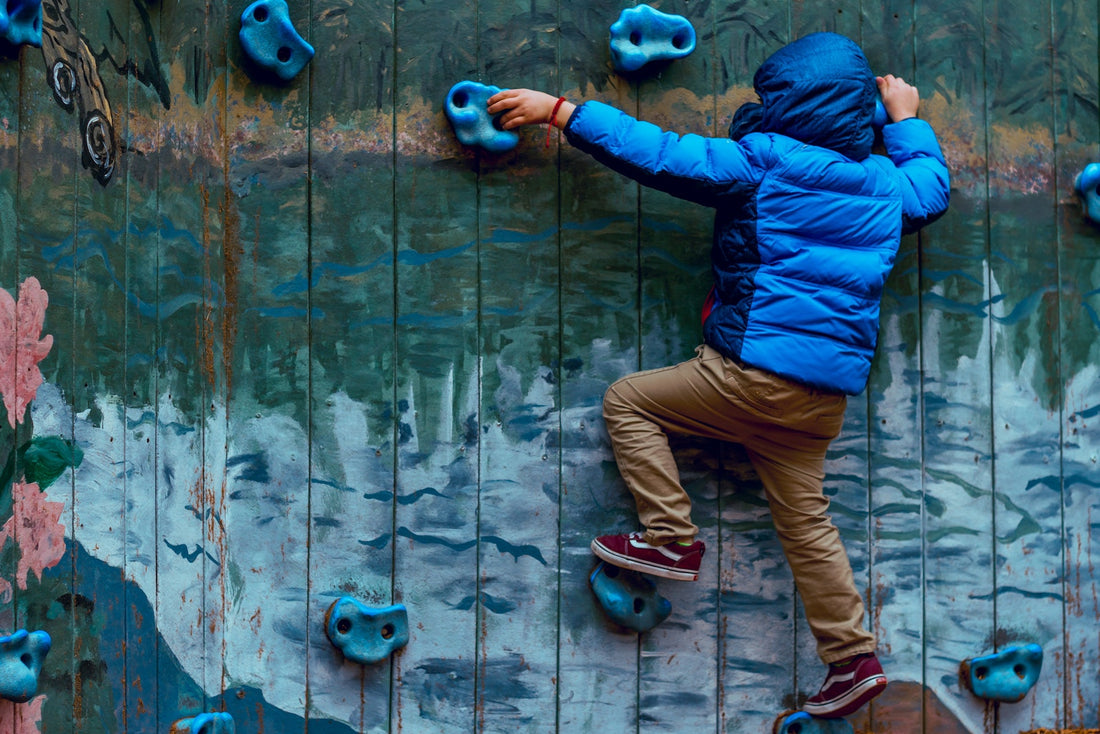With (home)school resuming and many of us adjusting to ongoing change, our children are most likely experiencing what we call “big feelings”.
As adults, we’ve gone through enough in life to be able to adapt and find solutions as we go. But, our kids are still in the developmental phase and this could be one of their first biggest lifestyle changes.
When children go through change and aren’t shown a healthy way to deal with it, the experience can become traumatic.
Turns out, there’s no minimum age when building resilience in your children.
What is resilience?
Resilience is the ability to bounce back from stress, adversity, failure, challenges or even trauma. It is a skill that kids develop as they grow.
Why is it important?i
Resilient kids are more likely to take healthy risks because they don’t fear disappointment. Empowering children to become more resilient will help them throughout their life.
If they’re not born with it, how can kids develop resilience?
Beyond Blue found that there are 5 main areas that help build resilience in children:

Here’s where you come in as the adult
As an adult, you can help educate and demonstrate skills to develop resilience:
- Build healthy relationships with peers (other children) and adults
As a parent, here are some areas to guide your children to help strengthen their relationship with their peers and adults:
- Spend quality time with your kids to strengthen your bond
- Support your child to build relationships with other adults
- Help your child to develop social skills and friendship with other children
- Help your child develop empathy
- Have regular family dinners with engaging conversations
- Promote and encourage independence, autonomy and responsibility
Handling simple responsibilities is an opportunity for kids to feel a sense of achievement which is a massive boost to their morale.
Here are some ways to build their independence:
- Encourage your child to dress themselves, or set the table every night and gradually increase the complexity
- Talk about problem solving: help identify the issue and encourage them to figure out the solution, for example “what do you think will help you wake up on time?”
- Being bored is fine. Calm and non-stimulating settings allow children to get creative
- Demonstrate independence and responsibility by showing optimism when managing emotions
- Learn to identify, express and manage their emotions
Whether it’s because of the fear of getting into trouble or feeling embarrassed, children often opt to suppress their “big” feelings. Over time, this can bottle up and turn into something more severe.
It’s important to acknowledge their emotions, rather than telling them to feel less, and provide them a solution they can later adopt on their own.
Here are some tips:
- Use open-ended questions to help them express their experience. For example, “what’s the best part about today?” followed by, “what’s the toughest thing about today?”
- Let your child express their feelings even if their vocabulary is limited
- Acknowledge their emotions verbally, “I can see that made you upset”, “its ok to cry”
- Help them identify their emotion
- Dissuade children from self-deprecating comments. For example, a child may say “I suck at presentations”. Shift this to “Presentations isn’t my favourite task but that’s ok because I have other strengths”
- Help your child realise and accept that difficult times are a part of life
- Create opportunities and confidence for personal challenges
When children overcome challenges, it allows them to feel success to later use that as an encouragement to take on personal challenges.
Here’s how you can encourage this:
- Allow them to “have a go” regardless of potential failure
- Allow your children to experience every day adversity such as rain or losing the 100m race
- Use free play where they can play in their own creative way
- Build independence starting with simple tasks such as, getting their own cup of water to walking themselves to school
- Encourage them to identify the issue and help them find the solutions themselves
These are challenging times for both adults and children! It’s interesting that some of these tips follow us through to our adult life. It is true that resilience is a skill rather than something that you are born with!
We found that the daily dinner setting is a great way to practice resilience whether it be building a strong relationship, giving responsibilities to your child to set the table, or talking about their day including describing their emotions and how they overcame it.
We hope that these tips come in handy for you and your family!

